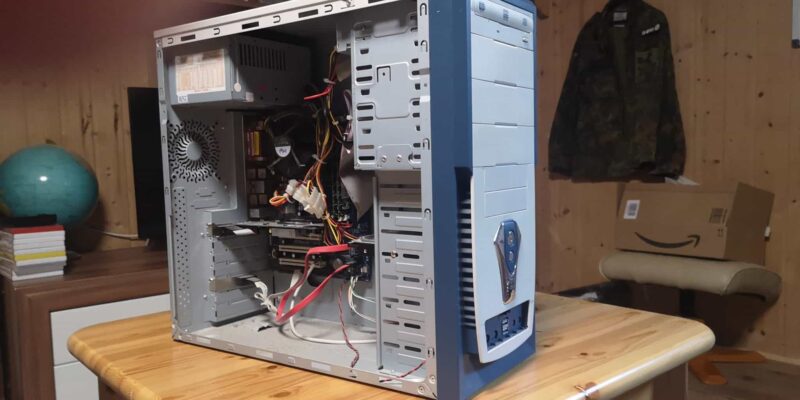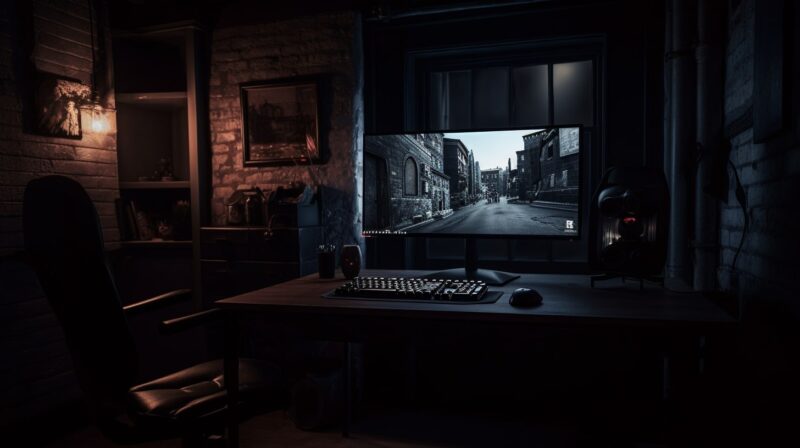Building a new gaming PC from scratch usually costs a good chunk of money, so we want the system to last as long as possible. In today’s era, technology evolves extremely fast, so parts can already be outdated at the time of installation. So, how long do gaming PCs last?
Gaming PC’s tend to last between 3-5 years on average before parts have to be replaced. The lifespan of a gaming system also depends on the built quality. A more powerful gaming PC tends to last longer than weaker versions because the higher performance makes it more future-proof.
For instance, my previous gaming system lasted about seven years until I replaced it with a new one. My new system contains an Nvidia GeForce RTX 2070 Super, 16GB DDR4 RAM, the MSI B450 Tomahawk MAX, and the AMD Ryzen 3600k. I expect this build to last about seven years, as it is even more powerful and robust than the previous system.
How long a gaming PC lasts highly depends on each component’s quality and how intense the system is used. A PC that runs 8-12 hours per day on max performance will not last as long as a system that only runs 3-5 hours per day on medium performance.
Also, cheaping out on essential components such as the power supply, CPU (processor), or GPU (graphics card) can lower the estimated lifespan of your gaming PC.
What Should You Upgrade First In A Gaming PC?

However, sooner or later, components will lose performance and get slower, so they have to be replaced to regain performance. One of the most upgraded parts in a modern gaming system is the GPU and RAM (Random-Acess-Memory), followed by the CPU and Motherboard.
What parts you should upgrade first in a gaming PC depends on the current specifications. At best, start one of your games and take a look at the in-game performance statistics, or use a program like the NZXT Cam.
If your graphics card runs on max speed and gets too hot during a gaming session, upgrading the GPU should be your first step. The same goes for the CPU; if it has to use all resources and runs too hot, upgrading to a stronger CPU needs to be done. Here is a small oversight of what parts you should consider upgrading:
| RAM | Power Supply |
| GPU (graphics card) | Cooling |
| CPU (processor) | HDD to SSD |
| Motherboard | – |
Side note: Upgrading parts in a gaming PC should focus on removing bottlenecks, which restrict the system’s performance. Most of the time, a low amount of RAM slows down the system, which is why having at least 8GB RAM is recommended. For heavier tasks or more intense gaming, 16 RAM is recommended.
Parts That Influence A PCs Lifespan
GPU: The GPU is one of the most replaced components, especially in gaming systems. Modern games require a lot of GPU power, causing it to run at higher temperatures and speeds. Because of this, GPUs tend to die sooner than other parts, such as the CPU or power supply.
PSU: The power supply unit is a crucial component in a gaming system, as it provides all parts with the right amount of power. PSUs with a platinum certificate from reputable brands such as Corsair or be Quiet! come with a 5-10 year warranty, and keep the system more stable than cheap PSUs.
CPU: Processors tend to last longer than other parts, such as the GPU. Usually, PC owners swap out their GPU 2-3 times until they upgrade to a more powerful CPU. However, the CPU is still a crucial component that executes instructions that make up a computer program.
RAM: RAM is another critical PC component and often a system’s bottleneck. Without enough RAM, the entire system slows down, sometimes making it impossible to play a game. RAM sticks usually operate at a 0-80°C range, but it can shorten their lifespan drastically if they run too hot.
Motherboard: The motherboard is the basis of each gaming system, as all components are connected to it. A motherboard doesn’t impact gaming performance, but it limits which parts can be installed. More expensive boards come with higher overclocking limitations and better wiring, increasing its lifespan and enable you to take full advantage of your CPUs potential. Click here to learn if motherboards do matter in gaming.
Cooling: Currently, there are two popular ways to cool down a gaming system; air coolers and All-In-One Watercooling systems. Good cooling makes sure your PC parts keep a stable temperature so they don’t lose performance during a session.
Is It Worth Getting A PC For Gaming?
If you want to play games, it doesn’t mean that you have to get a dedicated gaming PC, as most common office PCs can run less demanding games, such as Counter-Strike, Minecraft, Dota 2, League of Legends, and more.
Getting a gaming PC is worth it if the owner plays games on a regular basis that require more powerful components. Gaming PCs offer a better gaming experience than standard PCs because games run smoother on higher graphic settings without disturbing effects.
Not only do gaming PCs provide the best gaming experience, but they can also be used for everyday tasks and more demanding projects like 4k video editing. Also, everyone can find a system that fits his budget, but a good gaming system will still cost about $1,000 to $1,500.
Please note that getting a gaming system is only worth it if you use it for gaming regularly. If you don’t have a lot of free time because of work or other things, maybe you should consider going for a console, as they are cheaper, and also offer a great gaming experience.
However, if you get a gaming PC, you can expect to have a great time! Now, if you want how much a decent gaming setup costs, make sure to check out this post as well.
Conclusion

On average, a gaming PC can last between 3-5 years before parts need to be replaced. However, with proper maintenance and regular upgrades, this lifespan can be extended.
The most frequently upgraded components in a gaming PC are the GPU and RAM, followed by the CPU and motherboard. The lifespan of each component is also influenced by its quality and the intensity of its use. For instance, a GPU that runs at high temperatures and speeds due to demanding games may need to be replaced sooner than other components.
It’s also worth noting that the value of a gaming PC extends beyond its lifespan. Not only do gaming PCs provide an enhanced gaming experience, but they can also be used for everyday tasks and more demanding projects like 4k video editing. Therefore, while the initial investment may be significant, the benefits and enjoyment derived from a gaming PC can make it a worthwhile purchase.
Remember, the key to extending your gaming PC’s lifespan lies in regular maintenance, avoiding overheating, keeping your software and drivers updated, and upgrading components as necessary. By taking these steps, you can ensure that your gaming PC remains a powerful and reliable tool for both gaming and other tasks for many years to come.







